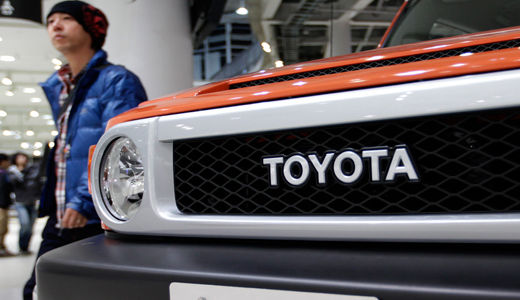
WASHINGTON – The Steelworkers, the Autoworkers and the AFL-CIO formally oppose letting Japan join talks on the latest controversial “free trade” treaty, the Trans-Pacific Partnership. All three say Japan’s protectionism, currency manipulation, and its refusal to open its vehicle markets to imports disqualify it from the TPP.
The TPP, a top Obama administration trade cause, would create yet another “free trade” treaty involving the U.S. and other nations surrounding the Pacific Ocean. Several of the nations now in the talks, such as Australia, are developed and with high wages and working conditions. But others, such as Vietnam, are sill developing nations, economically, with major multinationals paying low wages at plants there.
UAW’s detailed analysis cited the frustrations of the Detroit 3 in trying to crack the Japanese market. Though Japanese auto tariffs are now zero, the UAW said, the non-tariff barriers are extremely high, Japan manipulates the yen to aid exports and Japanese auto firm “transplants” in the U.S. routinely break labor laws and international standards, among other violations, the UAW said.
“The United States already has an enormous trade deficit with Japan, nearly 70 percent of it from auto. The overall U.S. trade deficit with Japan in 2012 exceeded $76 billion,” up 21 percent in a year. The auto trade deficit topped $52 billion, an increase of 25 percent since 2011. In short, for every vehicle exported to Japan from the United States, Japan exports 130 vehicles to the United States. With inclusion in the TPP, Japanese auto companies could maintain their protectionist system…Their nation would become a hub for an export-based manufacturing industry, putting American jobs at risk,” UAW added.
Steelworkers President Leo Gerard made the same point at the BlueGreen jobs conference in D.C., indirectly. He noted the deep connection between his members and U.S. automakers by saying that “when the auto plants add jobs, we add jobs” because USW members make the steel for the U.S.-made cars. More Japanese cars risks that.
“The problems the U.S. faces in access to the Japanese market have plagued us for 30 years,” Gerard’s more-detailed statement, issued from Pittsburgh, said. “The resulting trade deficit has fueled a trust deficit. Despite numerous trade agreements, Japan basically shut its door to foreign products.” The Reagan administration sanctioned Japan, but “Japan’s protectionist policies have been essentially ignored by Democratic and Republican administrations” since then. “Why will this trade agreement achieve the results that we’ve failed to achieve in past decades?” the USW asked.
“U.S. workers face massive potential job losses if Japan’s exports to the U.S. increase but its markets do not open as promised,” Trumka warned. “Japan is the second largest contributor to our international trade deficit after China, and its closed markets have proven immune to multiple efforts to achieve balanced trade.”
Photo: Unions are angry that for every 130 Japanese cars (like Toyota) exported to the U.S., only one American-made car is exported to Japan. Shizuo Kambayashi/AP












Comments